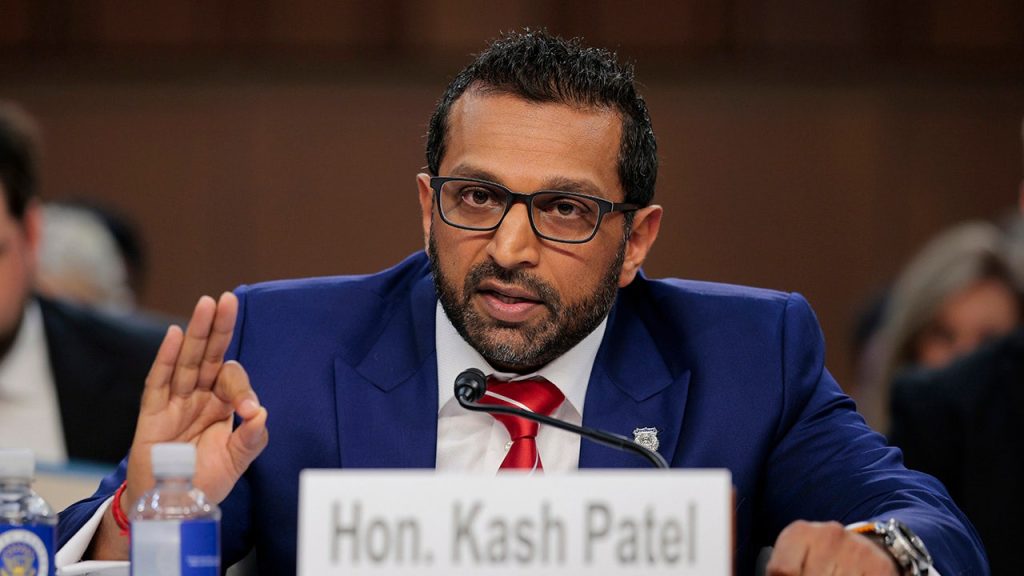Political Tensions Escalate as Nation Faces Difficult Challenges
In the wake of the tragic assassination of conservative leader Charlie Kirk, the political landscape in the United States has become increasingly polarized, with tensions rising between Democrats and Republicans across various government institutions. The recent testimony of FBI Director Kash Patel before the House Judiciary Committee highlighted these divisions, as he faced questioning about bureau reforms under the second Trump administration and the investigation into Kirk’s murder. Committee Chairman Jim Jordan praised Patel for what he described as a necessary “course correction” from the previous leadership, claiming the FBI had been weaponized against conservatives—a perspective that clearly demonstrates the deep ideological divide currently gripping Washington.
The political fallout from Kirk’s assassination has been immense, with reactions varying dramatically across the spectrum. While a House Democrat warned that both sides are on a “road to ruin” as the divide deepens, the Department of Homeland Security has pointed to inflammatory political rhetoric as a contributing factor in the surge of assaults on ICE agents. These developments come alongside testimony from a gun seller in the Trump assassination attempt trial, further highlighting the climate of political violence that has shocked the nation. The ripple effects of Kirk’s death have touched educational institutions, with Utah Valley University reopening amid what officials described as “extremely traumatic” circumstances, while Turning Point USA reports a surge of over 54,000 campus chapter requests following their founder’s assassination—suggesting his influence may be growing even after his death.
Within Congress, partisan conflicts continue to intensify beyond the Kirk assassination. “Squad” member and conservative Nancy Mace engaged in a heated social media clash, while Senator Rand Paul confronted a top Democrat over CDC vaccination policies for infants. Meanwhile, in the executive branch, the Pentagon has unveiled strict new “clean shaven” standards for military personnel, allowing medical exemptions in limited circumstances. These various policy disagreements, coupled with personal attacks, demonstrate that cooperation across party lines remains elusive as lawmakers struggle to address complex national challenges amid heightened emotions and suspicions.
State and local political dynamics are similarly fraught with controversy. A Republican who previously defied Trump regarding the 2020 election results has launched a gubernatorial bid in a battleground state, testing whether independence from party orthodoxy remains viable in today’s polarized environment. In Michigan, Governor Whitmer has remained silent on a controversy involving a Muslim mayor who allegedly told a critic of a terrorist sympathizer that they were “not welcome” in the community—illustrating how cultural and religious tensions are becoming increasingly entangled with mainstream politics. These situations highlight the challenges facing political leaders attempting to navigate divisive issues while maintaining support from their constituencies.
Educational institutions have become another battleground in America’s culture wars, with the reaction to Kirk’s assassination serving as a stark example. Reports of “celebratory” and “dismissive” responses from some educators have drawn intense scrutiny, while a liberal professors’ group has defended faculty speech rights following the assassination—though notably without explicitly condemning the attack itself. Prior to his death, Kirk had faced opposition from critics like Mamdani, who labeled him a “far-right extremist” who should be prevented from speaking at certain venues. These conflicts over free speech, acceptable discourse, and the boundaries of academic freedom reflect deeper disagreements about the fundamental values that should guide American society.
As the nation grapples with these challenges, there are efforts to honor Kirk’s legacy, including a proposal to name an Arizona highway after him. Meanwhile, former Vice President Mike Pence has secured a new position, demonstrating how political figures continue to reinvent themselves after leaving office. FBI Director Patel has had to defend himself against allegations of involvement in an Epstein “cover-up,” which he called “categorically false,” showing how conspiracy theories and accusations continue to shape public discourse. In this environment of heightened tensions and decreased trust, finding common ground seems increasingly difficult. Yet the very future of American democracy may depend on whether citizens and their leaders can move beyond mutual suspicion to address the substantive issues facing the nation—a task made all the more urgent by the violence that has claimed the lives of prominent political figures.


